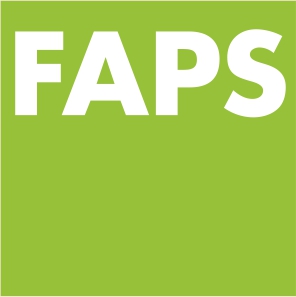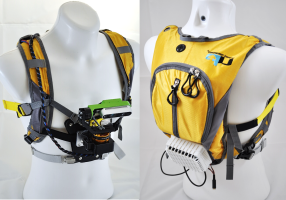Motivation
In 2020, 43.2 million people worldwide were affected by blindness and 295.3 million people suffered from mild to severe visual impairments. Impairments in visual perception present those affected with a wide range of challenges in everyday life, often resulting in limited participation in everyday life and a reduced quality of life.
The research project LOMOBI aims to develop an interactive assistance system for the navigation of visually impaired people in everyday life. Technologies from the fields of computer vision and mobile robotics are being adapted and further developed. The backpack developed in previous research projects to assist joggers (see picture) serves as a guide. Navigation signals for the person can be derived and transmitted by means of an environment detection system and a vibrotactile and auditory interface (vibration motors / bone headphones).
Aim of the work
The aim of this work is the evaluation and development of an indoor and outdoor navigation architecture for the existing assistance system. The system developed within the framework of the LOMOBI research project should be able to be used for both indoor and outdoor navigation. Different navigation information is available in these areas. In this work, algorithms for indoor and outdoor navigation for the assistance system are to be evaluated and implemented.
Previous knowledge / Notes
Basic programming knowledge should be available. The navigation architecture is to be implemented in ROS, so prior knowledge of C++ or Python and ROS is advantageous, but not necessarily required.
Contact
For further information, please send an email.

